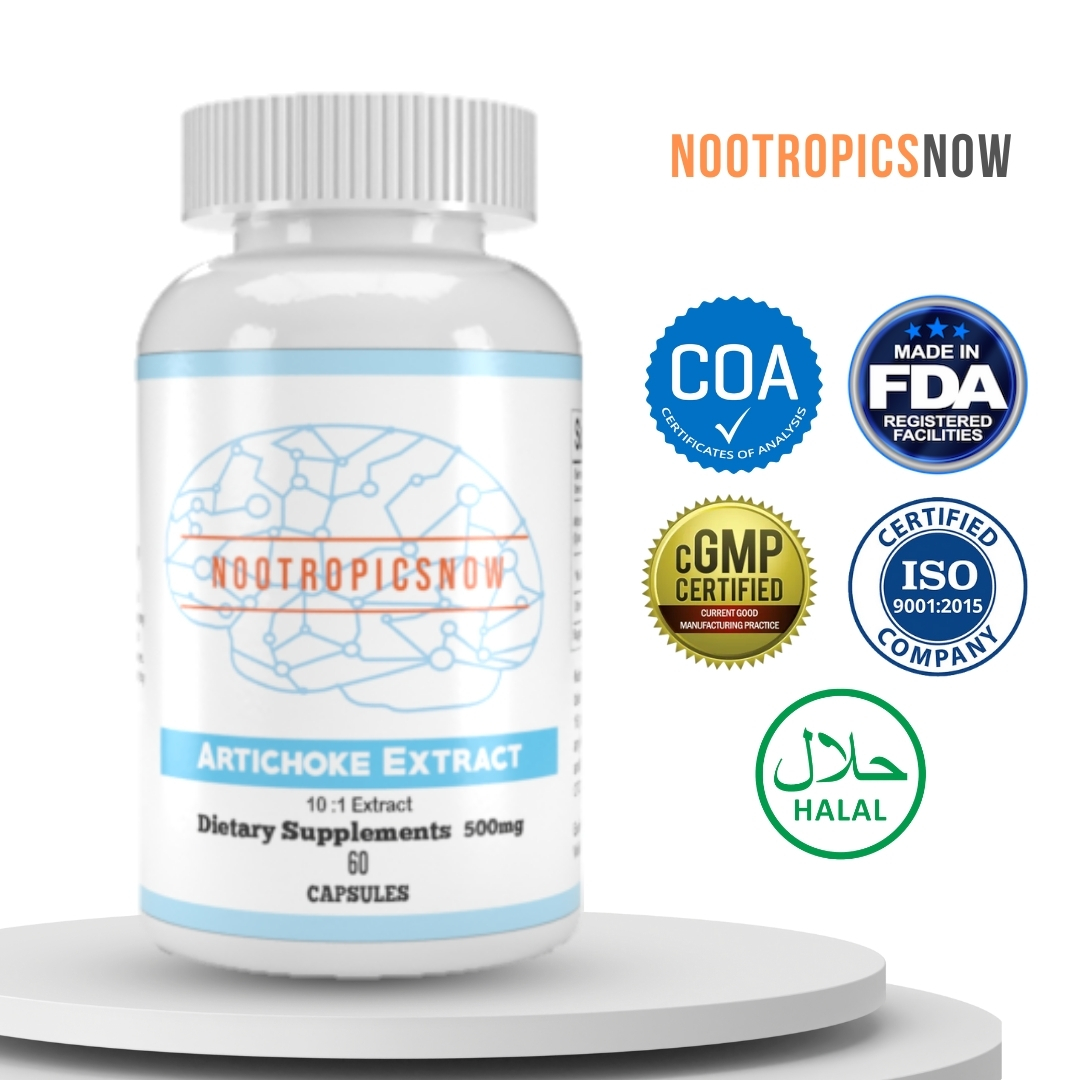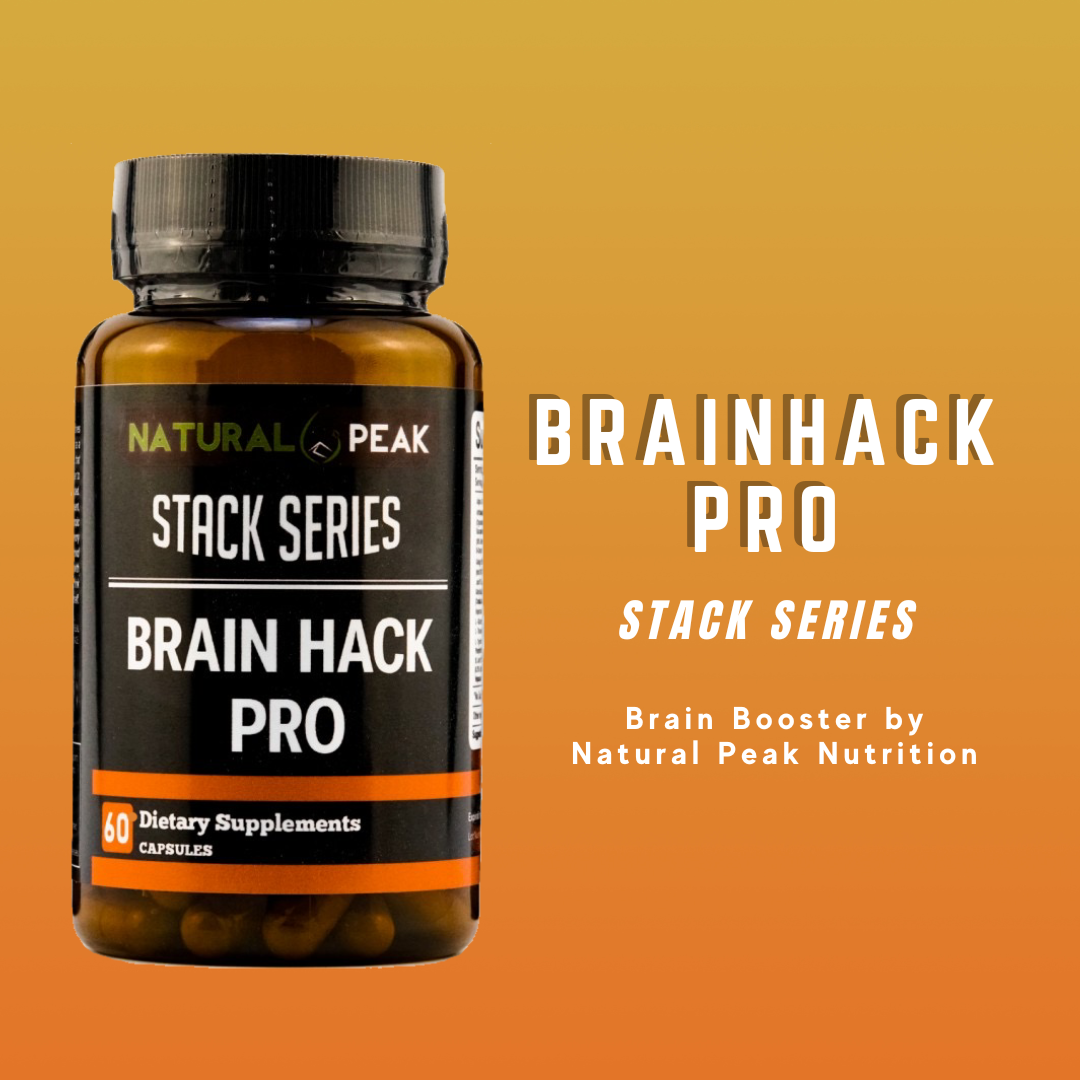Memory Enhancing Drugs: What Works?

`markdown
Drugs That Enhance Memory: A Comprehensive Exploration

The quest to enhance memory and cognitive function has driven significant research in pharmacology. While a “magic pill” for perfect recall remains elusive, several drugs show promise in improving memory, particularly for individuals with cognitive impairments. These drugs work through diverse mechanisms, targeting various neurological pathways to optimize brain function. Understanding these medications, their benefits, and potential risks is crucial for making informed decisions about their use.
Understanding the Landscape of Memory Enhancement
Before diving into specific drugs, it’s important to differentiate between cognitive enhancement in healthy individuals and treatment for cognitive impairment due to disease. Many substances touted as “smart drugs” lack rigorous scientific backing for use in healthy populations, while others have demonstrated efficacy in treating conditions like Alzheimer’s disease and age-related cognitive decline. This section focuses on drugs with documented effects on memory and cognitive function, primarily in clinical settings.
Cholinesterase Inhibitors: Boosting Acetylcholine Levels
Acetylcholine is a neurotransmitter essential for learning, memory, and attention. Cholinesterase inhibitors work by blocking the enzyme acetylcholinesterase, which breaks down acetylcholine in the synaptic cleft. By increasing the availability of acetylcholine, these drugs can improve neuronal communication and enhance cognitive function.
Donepezil (Aricept)
Donepezil is a reversible cholinesterase inhibitor commonly prescribed for Alzheimer’s disease. It enhances cholinergic neurotransmission by inhibiting acetylcholinesterase, thereby increasing acetylcholine levels in the brain. Clinical trials have demonstrated that donepezil can improve cognitive function, including memory, attention, and language skills, in patients with mild to moderate Alzheimer’s disease. However, its effectiveness is limited, and it does not cure the underlying disease process. Common side effects include nausea, diarrhea, insomnia, and muscle cramps.
Rivastigmine (Exelon)
Rivastigmine is another cholinesterase inhibitor approved for Alzheimer’s disease and Parkinson’s disease dementia. It inhibits both acetylcholinesterase and butyrylcholinesterase, further increasing acetylcholine levels in the brain. Rivastigmine is available in oral and transdermal patch formulations. The patch may offer advantages in terms of tolerability, reducing the incidence of gastrointestinal side effects.
Galantamine (Razadyne)
Galantamine is a reversible cholinesterase inhibitor and also modulates nicotinic acetylcholine receptors. This dual mechanism may contribute to its cognitive-enhancing effects. Galantamine has shown efficacy in improving cognitive function in patients with mild to moderate Alzheimer’s disease. Side effects are similar to those of other cholinesterase inhibitors, including nausea, vomiting, and diarrhea.
Table: Cholinesterase Inhibitors for Memory Enhancement
| Drug | Mechanism of Action | Approved Uses | Common Side Effects |
|---|---|---|---|
| ————- | ——————————————- | ——————————————– | ———————————————————- |
| Donepezil | Reversible acetylcholinesterase inhibitor | Alzheimer’s Disease | Nausea, diarrhea, insomnia, muscle cramps |
| Rivastigmine | Reversible acetyl- and butyryl- inhibitor | Alzheimer’s Disease, Parkinson’s Dementia | Nausea, vomiting, diarrhea, application site reactions(patch) |
| Galantamine | Reversible acetyl- inhibitor, nAChR modulator | Alzheimer’s Disease | Nausea, vomiting, diarrhea |
NMDA Receptor Antagonists: Regulating Glutamate Activity
Glutamate is the primary excitatory neurotransmitter in the brain, playing a crucial role in learning and memory. However, excessive glutamate activity can lead to excitotoxicity, a process that damages neurons and contributes to cognitive decline. NMDA (N-methyl-D-aspartate) receptors are a type of glutamate receptor involved in synaptic plasticity and memory formation. NMDA receptor antagonists block the activity of these receptors, preventing excessive glutamate stimulation and protecting neurons from excitotoxic damage.
Memantine (Namenda)
Memantine is an NMDA receptor antagonist approved for moderate to severe Alzheimer’s disease. It helps regulate glutamate activity, reducing excitotoxicity and improving cognitive function. Memantine is often used in combination with cholinesterase inhibitors to provide a more comprehensive approach to treating Alzheimer’s disease. Common side effects are generally mild and may include dizziness, headache, and confusion.
Memantine works by preventing excessive calcium influx into neurons, which can cause damage.
Amyloid-Targeting Therapies: Addressing a Hallmark of Alzheimer’s
One of the pathological hallmarks of Alzheimer’s disease is the accumulation of amyloid plaques in the brain. These plaques are composed of beta-amyloid protein, which is thought to contribute to neuronal damage and cognitive decline. Several new therapies target amyloid plaques, aiming to reduce their levels and slow down the progression of Alzheimer’s disease.
Aducanumab (Aduhelm)
Aducanumab is a monoclonal antibody that selectively binds to aggregated forms of beta-amyloid, reducing amyloid plaques in the brain. It received accelerated approval from the FDA for the treatment of Alzheimer’s disease. However, aducanumab’s efficacy has been controversial, with some clinical trials showing modest benefits and others showing no significant effect. Concerns have also been raised about the risk of amyloid-related imaging abnormalities (ARIA), including brain swelling and microhemorrhages. Due to these concerns and limited evidence of clinical benefit, its use has been restricted.
Lecanemab (Leqembi)
Lecanemab is a monoclonal antibody that binds to soluble amyloid-beta protofibrils, a precursor to amyloid plaques. It is designed to remove these protofibrils from the brain, thereby reducing amyloid plaque formation. Lecanemab has shown more promising results than aducanumab in clinical trials, with evidence of slowing cognitive decline in patients with early-stage Alzheimer’s disease. However, it also carries a risk of ARIA. In July 2023, Lecanemab received traditional approval from the FDA.
Donanemab
Donanemab is another monoclonal antibody designed to clear amyloid plaques from the brain. It targets a specific form of beta-amyloid found in plaques. Clinical trial results suggest that donanemab can slow cognitive decline in patients with early-stage Alzheimer’s disease. Like other amyloid-targeting therapies, it carries a risk of ARIA. Further studies are ongoing to fully evaluate its long-term safety and efficacy.
Table: Amyloid-Targeting Therapies for Alzheimer’s Disease
| Drug | Mechanism of Action | Stage of Development/Approval | Potential Benefits | Risks |
|---|---|---|---|---|
| ———— | ———————————— | ————————————— | —————————————————– | ————————————————- |
| Aducanumab | Binds aggregated beta-amyloid | Accelerated Approval (Limited Use) | May reduce amyloid plaques | ARIA (Brain Swelling, Microhemorrhages) |
| Lecanemab | Binds soluble amyloid-beta protofibrils | Traditional Approval | Slows cognitive decline in early Alzheimer’s | ARIA (Brain Swelling, Microhemorrhages) |
| Donanemab | Targets specific beta-amyloid in plaques | Under Evaluation | Slows cognitive decline in early Alzheimer’s | ARIA (Brain Swelling, Microhemorrhages) |
Other Emerging Therapies: Exploring Novel Approaches
Research into memory enhancement is ongoing, with several novel therapies in development. These therapies target different aspects of the disease process, including tau protein aggregation, neuroinflammation, and synaptic dysfunction.
Buntanetap
Buntanetap is a novel small molecule being investigated for its potential to modify the disease course in Alzheimer’s disease. It works by inhibiting the production of abnormal amyloid precursor protein, a key component of amyloid plaques. Early clinical trial results suggest that Buntanetap may slow cognitive decline and improve functional abilities in patients with early-stage Alzheimer’s disease. It is currently in phase 3 clinical trials.
Semaglutide
Semaglutide is a glucagon-like peptide-1 (GLP-1) receptor agonist, initially developed for the treatment of type 2 diabetes. GLP-1 receptors are found in the brain and play a role in neuroprotection and cognitive function. Some studies suggest that semaglutide may have neuroprotective effects and could potentially slow the progression of Alzheimer’s disease. However, more research is needed to confirm these findings.
Insulin Sensitizers
Emerging research suggests a strong link between insulin resistance and Alzheimer’s disease, leading to exploring insulin sensitizers as cognitive enhancers. Insulin sensitizers improve the body’s response to insulin, aiding in glucose metabolism and reducing insulin resistance. This enhanced insulin signaling may protect against neurodegeneration and improve cognitive function by fostering better energy utilization in brain cells. Drugs such as metformin and pioglitazone are being studied for their possible benefits in improving memory and slowing the progression of cognitive decline.
Lifestyle Interventions: A Complementary Approach
While drugs can play a role in memory enhancement, lifestyle interventions are also crucial. A healthy diet, regular exercise, cognitive training, and social engagement can all contribute to maintaining cognitive function and reducing the risk of cognitive decline. These interventions can complement drug therapies, providing a holistic approach to memory enhancement.
Cognitive Training
Cognitive training involves engaging in activities that challenge cognitive skills, such as memory, attention, and problem-solving. Studies have shown that cognitive training can improve cognitive function in healthy older adults and in individuals with mild cognitive impairment.
Physical Exercise
Regular physical exercise has numerous benefits for brain health, including increased blood flow, improved neuroplasticity, and reduced inflammation. Studies have demonstrated that exercise can improve cognitive function and reduce the risk of cognitive decline. Aim for at least 30 minutes of moderate-intensity exercise most days of the week.
Diet and Nutrition
A healthy diet rich in fruits, vegetables, whole grains, and lean protein can support brain health. Specific nutrients, such as omega-3 fatty acids, antioxidants, and B vitamins, are particularly important for cognitive function. Limit processed foods, saturated fats, and added sugars.

View Product
Social Engagement
Social interaction can stimulate cognitive function and reduce the risk of social isolation, which is a risk factor for cognitive decline. Engage in social activities, such as joining clubs, volunteering, or spending time with friends and family.
Caveats and Considerations
It is critical to recognize that memory enhancement drugs are not without risks and limitations. Most of these drugs are approved for specific conditions, such as Alzheimer’s disease, and their use in healthy individuals is not well-established. Furthermore, all drugs have potential side effects, and it’s crucial to discuss these with a healthcare provider before starting any medication. Additionally, memory enhancement is a complex process, and drugs are just one piece of the puzzle. Lifestyle interventions, such as diet, exercise, and cognitive training, are equally important for maintaining cognitive function and reducing the risk of cognitive decline.

View Product
Conclusion
The field of memory enhancement is rapidly evolving, with new drugs and therapies emerging all the time. While a “magic pill” for perfect recall may not be available yet, several drugs show promise in improving memory and cognitive function, particularly for individuals with cognitive impairments. By understanding these medications, their benefits, and potential risks, individuals and healthcare providers can make informed decisions about their use. It is critical to consult with a healthcare professional before taking any medication for memory enhancement. Furthermore, remember that lifestyle interventions are equally important for maintaining cognitive function and reducing the risk of cognitive decline. A holistic approach, combining drug therapies with healthy lifestyle choices, offers the best chance for optimizing brain health and preserving memory.
`
Drugs That Enhance Memory: A Comprehensive Overview
Memory enhancement is an active area of research, especially concerning neurological disorders, such as Alzheimer’s disease and other forms of dementia. Several drugs aim to improve memory and cognitive function. These often work through various mechanisms and provide diverse benefits. Let’s delve into some frequently discussed options.
Cholinesterase Inhibitors: Boosting Acetylcholine Levels
Cholinesterase inhibitors represent a primary pharmacological strategy for memory enhancement. They primarily operate by inhibiting the action of cholinesterase enzymes. Consequently, these enzymes break down acetylcholine. Acetylcholine, therefore, is a crucial neurotransmitter for memory, learning, and attention. By preventing its degradation, these inhibitors effectively increase acetylcholine levels within the brain. This augmentation enhances neuronal communication and improves cognitive functions.
Donepezil (Aricept): A Widely Used Option
Donepezil, sold under the brand name Aricept, is widely used to treat Alzheimer’s disease and dementia associated with Parkinson’s disease. It improves cognitive functions by preventing the breakdown of acetylcholine. Typically, donepezil is administered once daily in tablet form. Common side effects can include nausea, diarrhea, and insomnia. Despite these potential side effects, many individuals with mild to moderate Alzheimer’s disease experience significant cognitive benefits. Its effectiveness also extends to slowing cognitive decline, thereby improving the quality of life for patients.
Rivastigmine (Exelon): Versatile Administration Options
Rivastigmine, commercially available as Exelon, offers versatility through its administration options, namely oral capsules and transdermal patches. Like donepezil, it prevents acetylcholine breakdown. It’s prescribed to manage the symptoms of Alzheimer’s disease and dementia with Lewy bodies. The transdermal patch provides a consistent drug release, reducing the fluctuations associated with oral dosing. Side effects are similar to donepezil, including nausea and dizziness. Rivastigmine’s dual administration routes cater to different patient needs and preferences, thus making it a flexible treatment option.
Galantamine (Razadyne): Dual Mechanism Benefits
Galantamine, marketed as Razadyne, provides a dual mechanism. It inhibits acetylcholinesterase and modulates nicotinic acetylcholine receptors. Galantamine enhances acetylcholine’s action and its release. It is typically used for mild to moderate Alzheimer’s disease. Patients generally take it in tablet or solution form. Side effects may include nausea, vomiting, and decreased appetite. Because it modulates acetylcholine receptors, galantamine has shown additional cognitive benefits. This action potentially gives it an advantage over simpler cholinesterase inhibitors.
Glutamate Regulators: Balancing Brain Activity
Glutamate regulators modulate glutamate levels within the central nervous system. Glutamate is an excitatory neurotransmitter involved in learning and memory. However, excessive glutamate can lead to excitotoxicity, potentially causing neuronal damage. Glutamate regulators restore balance to protect brain cells and enhance cognitive functions.
Memantine (Namenda): Protecting Against Excitotoxicity
Memantine, often sold under the brand name Namenda, stands out as a unique glutamate regulator. It is generally prescribed to treat moderate to severe Alzheimer’s disease. Memantine works by blocking NMDA receptors, which are activated by glutamate. By blocking these receptors, it reduces glutamate’s toxic effects on brain cells. It is often prescribed with cholinesterase inhibitors to give a more comprehensive approach. Its side effects are dizziness, headaches, and confusion. It’s a useful intervention to enhance cognitive function and slow disease progression.
Monoclonal Antibodies: Targeting Amyloid Plaques
Monoclonal antibodies are a newer class of drugs. They have shown promise in treating Alzheimer’s disease. They target specific proteins associated with the disease, such as beta-amyloid plaques. Beta-amyloid plaques are abnormal protein clumps that accumulate in the brain, disrupting neuronal function. These antibodies work by removing these plaques to potentially slow the disease’s progression.
Lecanemab (Leqembi): A Targeted Approach to Plaque Removal
Lecanemab, available under the brand name Leqembi, represents an advancement in Alzheimer’s treatment. It targets and removes beta-amyloid plaques. Consequently, it has shown great effect in slowing cognitive decline in individuals with early-stage Alzheimer’s. It’s administered intravenously. Potential side effects include infusion-related reactions and amyloid-related imaging abnormalities (ARIA), which can cause swelling or bleeding in the brain. Although risks are attached, Lecanemab represents a promising approach to disease modification. Its approval underscores the value of targeting amyloid plaques to treat the underlying pathology of Alzheimer’s disease.
Donanemab (Kisunla): A Promising Antibody Therapy
Donanemab, commercially referred to as Kisunla, is another monoclonal antibody showing promise. It also eliminates amyloid plaques. Clinical trial data have demonstrated its effectiveness in slowing cognitive and functional decline. It’s administered intravenously. Like lecanemab, it carries a risk of ARIA. However, the ability to reduce plaque burden offers a potential disease-modifying therapy. It might substantially affect the progression of Alzheimer’s. Further studies are needed to fully evaluate its safety and long-term efficacy. However, it signifies a substantial advancement in Alzheimer’s treatment.
Other Potential Therapies: Exploring New Avenues
Besides conventional treatments, researchers are exploring new avenues. These explore different mechanisms to boost memory and tackle neurodegenerative diseases. These therapies represent novel approaches with varying degrees of clinical validation. However, they are potentially impactful for managing cognitive health.
Semaglutide: Repurposing a Diabetes Drug
Semaglutide was originally developed to treat type 2 diabetes. It is showing promise in slowing the progression of Alzheimer’s. Semaglutide functions by increasing insulin sensitivity. It also interacts with receptors implicated in brain cell learning and protection. Clinical trials are currently evaluating its safety and efficacy in individuals with Alzheimer’s. Early studies indicate a potential for slowing cognitive decline and improving metabolic functions. This suggests a multifaceted approach to tackling the disease. Semaglutide may offer advantages. Its established safety profile in diabetes treatment gives it added appeal.
Buntanetap: Targeting Amyloid Protein Production
Buntanetap is a new drug being investigated as a treatment for Alzheimer’s disease. It directly aims at the amyloid protein. It reduces the generation of amyloid precursor protein (APP). The goal is to prevent amyloid plaque development and subsequent cognitive decline. Early clinical trial results have been positive. They indicate a potential for slowing down the progression of Alzheimer’s. It’s still in the investigational phase, but Buntanetap represents a forward stride in disease-modifying therapies. Its mechanism, if substantiated, could alter the course of Alzheimer’s disease.
Memory-Enhancing Drugs: Considerations
When considering memory-enhancing drugs, individuals should understand they are not a cure-all. Most medications address symptoms. They manage the underlying causes of memory loss. The best results typically come from individualized treatment strategies. They incorporate lifestyle changes, cognitive therapies, and medication.
The Importance of Consulting Healthcare Professionals
Consulting with healthcare professionals is paramount for individuals experiencing memory problems. Proper evaluation will identify the cause of memory loss. Healthcare providers can assess medical history, perform cognitive testing, and, if necessary, conduct neuroimaging studies. They can give a correct diagnosis and customize a treatment plan. It addresses specific needs and optimizes cognitive health.
Lifestyle Modifications: Complementing Medical Treatments
Lifestyle modifications have a vital part in promoting cognitive well-being. Consistent physical exercise, a healthy diet rich in antioxidants, sufficient sleep, and intellectual stimulation are all beneficial. These practices support brain health. They can augment the effects of memory-enhancing medications. Regular physical exercise improves blood flow to the brain. This promotes neuroplasticity. The diet should include fruits, vegetables, and omega-3 fatty acids. This supplies essential nutrients for cognitive function. Adequate sleep consolidates memories. It facilitates brain repair. Engaging in mentally stimulating activities such as puzzles, reading, and learning new skills can preserve cognitive reserves.
Specifically, many turn to nootropics in conjunction with lifestyle changes.

View Product
View Product

View Product

View Product
Potential Risks and Side Effects
Memory-enhancing drugs do have side effects and risks, ranging from gastrointestinal distress to cardiovascular issues. Monoclonal antibodies can trigger ARIA, which needs careful monitoring. Individuals must understand the possible risks. They must communicate with healthcare providers. Also, they should report any unexpected symptoms. The benefits and dangers must be well-balanced. The optimal dosage has to be found. Thus, healthcare practitioners should offer continuous evaluation and assistance.
Future Directions in Memory Enhancement
Memory enhancement research is always changing. New therapies, such as gene therapy and stem cell treatments, are being explored. Nanotechnology is also being investigated. These aim at improving memory and curing the underlying causes of neurodegenerative illnesses.
Gene Therapy: Targeting Genetic Risk Factors
Gene therapy involves altering a person’s genes to treat or prevent disease. It holds promise for addressing the genetic risk factors that contribute to illnesses like Alzheimer’s. Researchers are discovering genes linked to Alzheimer’s. They are developing techniques to target and modify them. This may potentially fix genetic defects. It may reduce the production of damaging proteins such as amyloid. While gene therapy is still in its infancy, it holds huge potential for delivering long-lasting therapeutic advantages.
Stem Cell Therapy: Regenerating Brain Tissue
Stem cell therapy entails using stem cells. This can replace damaged or lost brain tissue. Stem cells can differentiate into several cell types, notably neurons and glial cells. Glial cells support neuronal function. Researchers are looking into stem cell transplantation as a means to regenerate brain circuits. Also, they want to promote neuroplasticity in individuals with neurodegenerative disorders. Although stem cell therapy faces challenges, it offers a tempting approach to repairing brain damage. It has potential for reversing cognitive decline.
Nanotechnology: Precision Drug Delivery
Nanotechnology offers an effective way of delivering medications to specific brain areas. Nanoparticles can pass the blood-brain barrier. This allows for accurate delivery of therapeutic chemicals. Researchers are developing nanoparticles to target amyloid plaques, neurofibrillary tangles, and inflammation. This reduces off-target side effects. Nanotechnology improves the effectiveness of memory-enhancing treatments. It optimizes drug dispersion and concentration in the brain.
Conclusion: Optimizing Cognitive Health
Memory loss is a complex, multifaceted disease that poses a substantial obstacle to affected people and society. Although no medicine has completely reversed memory loss, several drugs have been developed to improve memory and slow the progression of disorders such as Alzheimer’s disease. Cholinesterase inhibitors, glutamate regulators, and monoclonal antibodies offer symptom alleviation. They may provide disease-modifying benefits.
Lifestyle changes, early detection, and thorough therapy are critical for improving cognitive health. These efforts maximize the efficacy of available therapies. Emerging medicines like gene therapy, stem cell therapy, and nanotechnology have promise. They will revolutionize the management of memory loss in the future. Healthcare practitioners’ ongoing research, advancement, and collaboration are essential for developing successful strategies. This enhances cognitive performance and optimizes quality of life for people struggling with memory difficulties.

